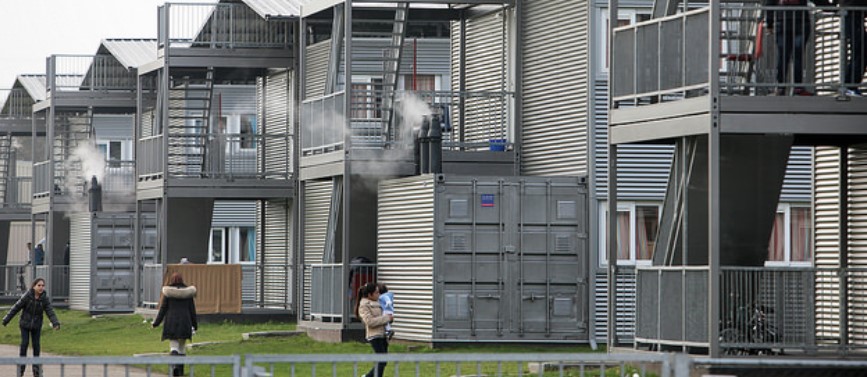According to figures from the repatriation service Dienst Terugkeer en Vertrek (DTV), published by the Telegraaf newspaper, some 2 310 requests to take back a foreign national who had been refused permission to stay in the Netherlands were turned down between 2014 and May 2018.
A further 8 020 requests were withdrawn because no answer was received within a year.
During 2018 the DTV’s efforts to repatriate migrants that had been refused asylum, have failed more times than they have succeeded. Some 1 760 requests were granted while 2 410 requests were refused.
Algeria happens to be the country that refused the largest number of requests, while Afghanistan, Morocco, Iraq and Iran regularly failed to respond to Dutch repatriation requests.
Migrants who have exhausted the application and appeals process are required to leave the country within 28 days, after which they lose all right to accommodation and other state support – unless they co-operate with their removal.
DTV spokesman Lennart Wegwijs said the number of migrants affected was less than 10 000 because some people were the subject of more than one request. “For some people we have made repeated requests and in some cases we have made applied to several countries for the same person. I can’t say how many people it actually involves. I don’t have those figures.”
Meanwhile, two centres for problem asylum seekers are both to be closed down at the end of this year. The centres in Heerenveen and in Amsterdam were opened on two-year contracts in 2017 and were each supposed to house 50 asylum seekers who caused trouble at regular centres and needed to be moved elsewhere.
In Amsterdam, city officials confirmed that they will close their centre as planned. “We were being called out to incidents involving the residents at least twice a week,” a police spokesman told broadcaster NOS.
Most of the residents come from safe third countries such as Morocco and face deportation but have not yet been sent back.
The decision to close the centre in Amsterdam had been taken due to the scarcity of property in the Dutch capital and to comply with promises to locals, mayor Femke Halsema said. “It is now time for other towns and cities to take on this role,” she added.
In Heerenveen, where the other centre is located, the migrants have now been banned from entering parts of town, including the local shopping centre because of the constant problems they cause.
“We have had to deal mainly with people who have no chance of getting a permanent residency permit,” mayor Niek Loohuis told NOS.
The Dutch Justice Ministry has pledged to speed up the assessment of asylum requests by people from safe countries, so they can be sent back as quickly as possible after it emerged that thousands of rejected migrants are stuck in the Netherlands because their home countries have refused to take them back.
Meanwhile, police said on Tuesday that three men were wounded in a stabbing incident at a asylum centre in Harderwijk on Monday night and two injured people had to be taken to hospital.
More than 1 600 child asylum seekers have gone missing from their accommodation in the last four and a half years, raising fears that some may have been pushed into street crime. According to figures obtained by NRC, the number is higher than previously thought.
This is because separate data sets were being kept by the COA, the supervisory body for asylum centres, and Nidos, which regulates guardianship for asylum seekers under 18.
Both organisations say there are strong indications that others are exploited by criminal networks.
Nidos workers told NRC they had encountered Moroccan children with shopping lists of perfume, clothes and other items they had been ordered to steal.
Eritrean girls were seen leaving their accommodation in revealing clothing and returning with expensive mobile phones that they kept switched on, leading staff to suspect they were working as underage prostitutes.
Many of the children were also addicted to Clonazepam, a drug used to treat seizures and panic attacks, the report said.
Hester van Bruggen, who was posted to Rome by the Dutch prosecution service to gain a better understanding of international human trafficking, warned last month that the Dutch authorities were “missing something terrible”.
The largest number of young asylum seekers going missing were Moroccan, accounting for 325 of the total number, followed by children from Algeria (190), Afghanistan (167), Syria and Eritrea (114 each).
Police in Rotterdam said they often picked up minors in the city and took them to the central accommodation centre in Ter Apel, but they either refused to go inside or left again during the night before their guardian could be informed.













One comment
i put a big bet that their origin countries want to reserve their properties and wealth…
can anyone investigate that asking for asylum in another country, means rejecting your nationalities ?
By submitting a comment you grant Free West Media a perpetual license to reproduce your words and name/web site in attribution. Inappropriate and irrelevant comments will be removed at an admin’s discretion. Your email is used for verification purposes only, it will never be shared.